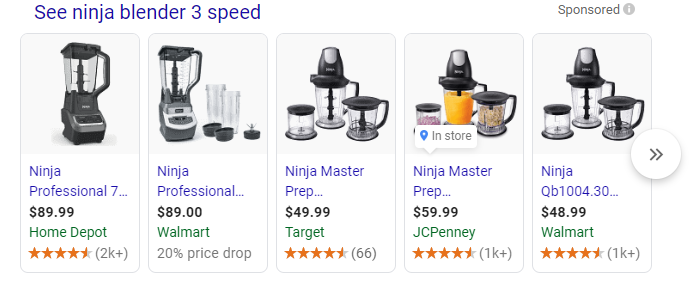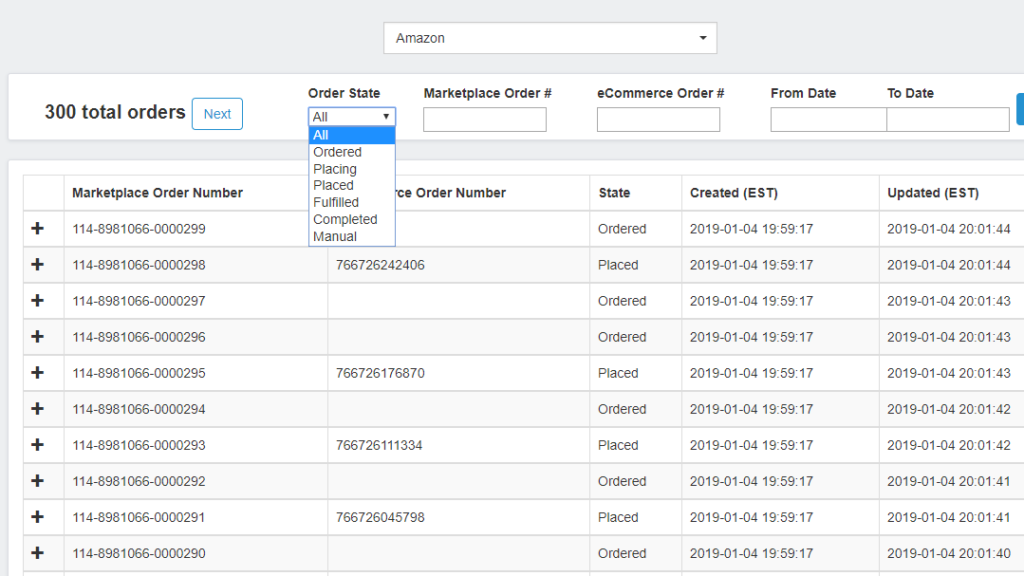This guest article comes courtesy of Brian Roizen from Feedonomics
In today’s e-commerce world, selling only on one or two channels is not enough. You know that old saying, “don’t put all of your eggs in one basket”? To run a successful e-commerce business, you need to diversify if you want to expand your reach, increase sales, and broaden your customer base, and that means placing a focus on multichannel marketplaces.
Shifting to a multichannel marketing approach is key because consumers today are engaged across multiple marketplaces. A majority of online customers start their product research on search engines or marketplaces—for example, over 55% of all product searches start on Amazon and 92% of those who start on Amazon end up purchasing from there.
Getting listed on marketplaces like Amazon, Google Shopping Actions, Walmart, eBay or on a social platform like Checkout on Instagram is a goal for many merchants. Having a brand presence across multiple marketplaces increases the likelihood of potential buyers for your product but it also requires additional work, resources, and investment. Managing data across multiple marketplaces can be complex and challenging. Having to manually update product pricing and inventory quantities for hundreds, thousands, or even millions of items is time-consuming and will take huge amounts of manual effort, which can lead to mistakes.
Multichannel Inventory Issues
Let’s look at the following scenarios:
- You have four skateboards left in stock. That afternoon, your website processes four skateboard orders and at the same time, someone on Amazon bought one as well.
- Your Walmart listing shows five Instant Pots left but your Amazon store says out of stock.
- Your website lists three Ninja Blenders left in stock at $79.99, yet your Google Shopping listing shows the same Ninja Blender at $89.99 with only one left in stock.

Seeing a pattern? I think you get the idea here. Listing incorrect stock and/or pricing can not only lead to buyer confusion but may result in customer complaints and poor reviews. Without proper inventory management, you risk losing money due to delays, order cancellations, overstock issues and even worse, it could lead to a suspension or even termination of your account from a marketplace like Amazon.
Inventory Order Management Tools
Faster order management and fulfillment can help avoid oversold situations. How so? Product prices are updated constantly, old or seasonal products will become obsolete and discontinued, and new products will be added into the mix. If you don’t update your product feed, then you are at risk of receiving feed errors or disapprovals. With a feed management platform, you can set this up so that it automatically pulls data and updates your feed weekly, daily, or even every 15 minutes.
An automated order management system will automatically pull orders from each marketplace channel and deliver them to your system in one user-friendly dashboard. Everything is synced to your online store so that you can efficiently manage marketplace inventory and prevent overselling by ensuring accurate product availability.

Companies must make the necessary investments in feeding accurate product data continuously to these multichannel marketplaces to ensure they can compete for market share during the product research phase of the buyer’s journey.
Work Smarter, Not Harder
Channel-specific data requirements are always evolving and companies continue to adopt more channels to sell through. Having an effective product feed management platform that meets the individual requirements of various channels in order to provide complete, accurate, and timely product data is key to running a successful e-commerce business.
Specialized software systems that assist with inventory management, order management, and product listing management can help businesses overcome the challenges of managing their e-commerce orders across multichannel marketplaces.
About the Author
 Brian Roizen is the co-founder and chief architect of Feedonomics, a full-service feed optimization platform that optimizes product data for hundreds of channels. He has been featured on numerous podcasts and webinars, and regularly contributes to Search Engine Land and other industry-leading blogs. Brian graduated summa cum laude from UCLA with both a bachelor’s and master’s degree in Mechanical Engineering.
Brian Roizen is the co-founder and chief architect of Feedonomics, a full-service feed optimization platform that optimizes product data for hundreds of channels. He has been featured on numerous podcasts and webinars, and regularly contributes to Search Engine Land and other industry-leading blogs. Brian graduated summa cum laude from UCLA with both a bachelor’s and master’s degree in Mechanical Engineering.
Rob Zaleski
Latest posts by Rob Zaleski (see all)
- USPS 2023 Shipping Rate Changes - November 16, 2023
